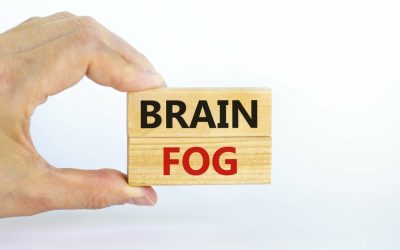An addict in this stage needs counseling and support to help them move to the next. The brain adapts to consistent alcohol or drug use and becomes reliant on it, leading to impulsive and often risky behavior to obtain the substance of choice. At this point, the user is no longer in control of their actions and will continue to fight overwhelming urges with little to no success.
Relapse
- Rehab Guide is a free help and assessment service to help you choose the best drug & alcohol rehab for you.
- Doing this helps motivate you and be more driven towards addressing your addiction problem.
- Repeatedly recognized as Newsweek’s best treatment center in California, they offer highly personalized, non-12-Step care using evidence-based and holistic approaches.
- This is a common mistake made by many recovering addicts, thereby making it a lot harder to break free from the addiction cycle.
- Basically, healthy habits will change your life and are worth whatever effort it takes to build them into a routine.
The brain’s dopamine balance is altered when a person uses drugs or alcohol. Drugs over-stimulate dopamine receptors causing a release (euphoria) or a lull (sedation). The desire for these sensations causes the individual to crave more of the drug or alcohol, which will lead to tolerance, dependence, and addiction. The length of the cycle varies among addicts, and it’s difficult to break out of the addiction cycle without help. A binge user can go through the stages of the cycle several times a http://ostrogozhsk.ru/forum/viewtopic.php?t=7504 day, while others can take years to complete one cycle. An external intervention or the addiction’s consequences (financial, legal, social, medical) can disrupt the cycle at any point.
Treatments
If you or a loved one is stuck in the cycle of https://www.mix-cite.org/addiction-a-la-pornographie/ addiction, you need to seek professional help immediately. To understand how mental health and addiction are linked, we first need to define co-occurring disorders (often known as dual diagnosis). This term refers to when an individual experiences both a mental health condition – such as depression, anxiety, or PTSD – and a substance use disorder simultaneously.

Understanding Stress
Signs of this happening often include consuming more of the substance; more enough for you to notice. For example, http://nbt-stroy.ru/catalog/gruntovki-emali-laki/poliuretanovaya-emal-tinlayn-06/ one glass of wine might turn into one and a half, and then two in a relatively short amount of time. They may seem the same after two glasses as they did after one—that’s because their tolerance increased.
- If you’re supporting a loved one, learn how to approach them with compassion and encourage professional help without judgment.
- At this stage of the cycle of addiction, chemical changes occur in the brain and body.
- See a certified medical or mental health professional for diagnosis.
- Addiction leads to harmful consequences and lasting brain changes, setting it apart from other substance misuse.
- You also should communicate with your accountability partner once or twice a week, even when not experiencing any temptations to relapse.
- An addictive cycle includes a range of bad habits, which means that breaking a cycle ill require breaking each of the habits involved in that cycle.
Make sure you have adequate aftercare in place when you complete a course of treatment
- We are more likely to make an effort when we truly feel the pain of the consequences of drug use.
- You’ll learn about its stages, how to break free, and how your loved one can develop the strength to succeed in recovery.
- Their willpower is no longer something they can rely on to control their substance use, and can become utterly trapped in the addiction cycle.
- Negative perceptions around both mental illness and addiction often prevent individuals from reaching out.
- Detox focuses on helping people to stop taking the addicting drug as quickly and as safely as possible.
It’s not uncommon; statistics reveal that nearly 50% of people with a mental illness experience a substance use disorder in their lifetime. Addiction and relapse cycles can increase the chance of patients developing clinical mental health disorders, even if they originally became addicted just through recreational use. Professional addiction treatment centers specializing in dual diagnosis provide solutions with higher success rates than those that treat only physical dependency. It is not unusual for anyone suffering from depression and other emotional issues to turn to drugs and alcohol.

For example, when it comes to illicit drugs used to feel a ‘high,’ even one use is considered abuse. A practical step towards breaking the addiction cycle is replacing activities that trigger cravings with behaviors you enjoy. A person in the final stage of breaking the addiction cycle is fully committed to preventing relapse; they keep up with counseling appointments, lifestyle changes, and support meetings.
Signs of Tolerance and Dependence
It takes strength, resilience, and a willingness to change, but it’s possible. People struggling with addiction need the guidance of trained professionals to help them recover. Rehab therapists or professional counselors can provide the help your loved one needs. Understanding these stages can help you anticipate difficulties in your loved one’s journey. Next, you’ll find helpful insights that will provide solutions to put an end to addiction. As tolerance builds up, individuals may increase their drug use to get the initial effect.
